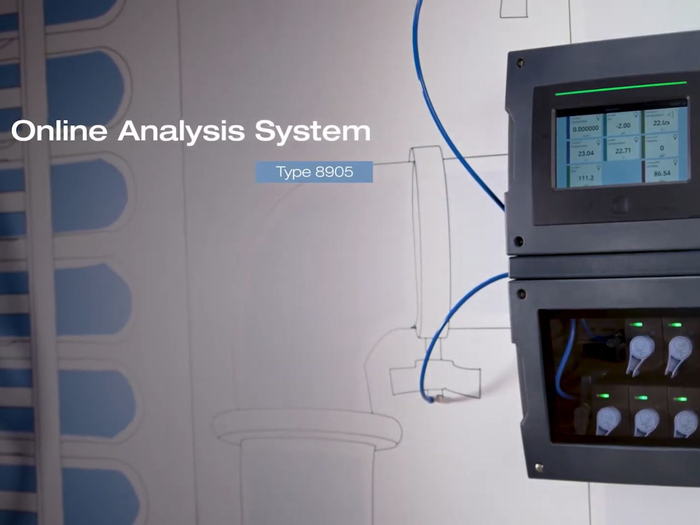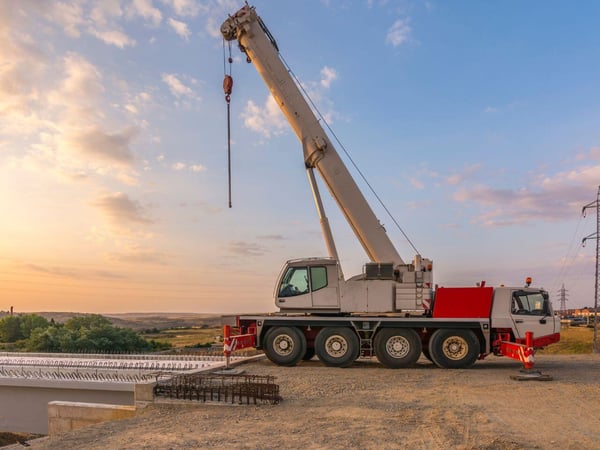
Water analysis in Food&Beverage processes: the modular efficiency of the Bürkert 8905 system
In the food and beverage industry, water is a key resource: it is a fundamental ingredient in many products and an essential element to ensure hygiene and safety in production environments. Continuous and accurate monitoring of water quality is not just a regulatory compliance matter, but a real business requirement, directly impacting the final product quality and the efficiency of production processes. In this context, choosing a reliable and modular analysis system, such as the Bürkert Type 8905, becomes a strategic choice to simplify operational management and improve the overall reliability of the production process.
A modular system for continuous water monitoring
The Type 8905 online analysis system is designed with a modular structure based on Bürkert’s innovative Sensor-Cube technology, allowing simultaneous monitoring of up to six different parameters with a single compact unit.
These parameters include pH, chlorine, chlorine dioxide, conductivity, redox potential, turbidity, temperature, and dissolved iron. A significant advantage is the possibility to integrate up to 30 sensor modules into a single büS bus system, ensuring flexibility even for more complex plants.
Thanks to Sensor-Cube technology, each parameter is managed by a dedicated module, which can be replaced even while the system is running, thanks to the hot-swap function. This means zero process interruptions during maintenance.
Advanced applications in the food and beverage industry
In the food & beverage sector, water quality directly affects the organoleptic and microbiological characteristics of the final products. The Bürkert 8905 system is ideally suited for a range of applications:
Production of soft drinks and juices
Ensuring precise parameters such as pH and conductivity is essential to maintain flavor and stability in finished products, reducing the risk of microbiological contamination or unwanted changes in sensory properties.
Breweries and microbreweries
Accurate control of chlorine and redox potential is crucial to avoid off-flavors in the final product, preserving both quality and brand reputation.
Dairy industry
Turbidity and temperature are key parameters for pasteurization processes and for verifying cleanliness during CIP (clean-in-place) operations, ensuring complete hygiene and compliance with sanitary regulations.
Meat and fish processing
Continuous monitoring of chlorine dioxide and iron ensures maximum safety in the storage and processing of food, avoiding unwanted contamination and preserving freshness.
Operational advantages for the food industry
The Bürkert 8905 system offers numerous benefits that increase operational efficiency and safety:
- Continuous monitoring: eliminates the need for manual sampling, reducing human error and enabling timely intervention in case of anomalies.
- Real-time quality control: with always-available data, potential issues can be identified and corrected before they become critical.
- Simple integration: the system easily communicates with existing automation systems, such as SCADA or PLCs, thanks to its industrial fieldbus readiness.
- Automated calibration and cleaning: dedicated accessories such as the MZ20 unit allow preventive maintenance with minimal human intervention and maximum reliability.
Applications beyond food & beverage
The use of MEMS (Micro-Electro-Mechanical Systems) technology enables the Bürkert 8905 to work with minimal sample water volumes, drastically reducing waste compared to conventional systems. On average, water consumption per parameter analyzed is less than 6 liters/hour, compared to more than 12 liters required by other instruments.
This efficiency makes the system ideal for contexts where water is a precious resource or where low environmental impact processes are targeted:
- Drinking water treatment plants and aqueducts: ensures health and quality parameters compliant with European and international standards.
- Pharmaceutical and biotech industries: provides rigorous control over water used in cell cultures, preventing biological contamination.
- Chemical industry and wastewater treatment: monitors the presence of chemicals or heavy metals, reducing environmental risk.
- Chemical industry and wastewater treatment: monitors the presence of chemicals or heavy metals, reducing environmental risk.
The system’s flexibility and compatibility with major industrial communication protocols (Modbus, Ethernet, büS) make it perfect for complex and customized projects.
Sustainability and automation: the future of water analysis
The growing focus on sustainability and process digitalization makes the Bürkert 8905 a strategic choice for several reasons:
- Measurement reliability: guaranteed precision even under variable or challenging environmental conditions.
- Reduced operational costs: lower sample water consumption and ease of maintenance significantly cut system management costs.
- Compact design and ease of installation: the system occupies minimal space and is easily integrated even in existing plants with minimal technical modifications.
- Regulatory compliance: ensures compliance with current standards for potable, industrial, and process water.
- High adaptability and scalability: configurable to meet the specific needs of any production environment, from small artisanal businesses to large multinational companies.
The Bürkert Communicator software platform also allows for the programming of control logic through the f(x) function, graphical trend visualization, and remote diagnostics.
Precision and control: key elements for efficient processes
In an increasingly demanding production landscape, water monitoring cannot be left to chance. Whether it's ensuring quality in a craft brewery or optimizing processes in a large food plant, having accurate and continuous data is a critical success factor for business growth.
Systems like Bürkert’s Type 8905 represent a complete and modular technological solution for precise and reliable control of critical water parameters, with direct benefits in terms of final product quality, operational efficiency, and environmental sustainability.



